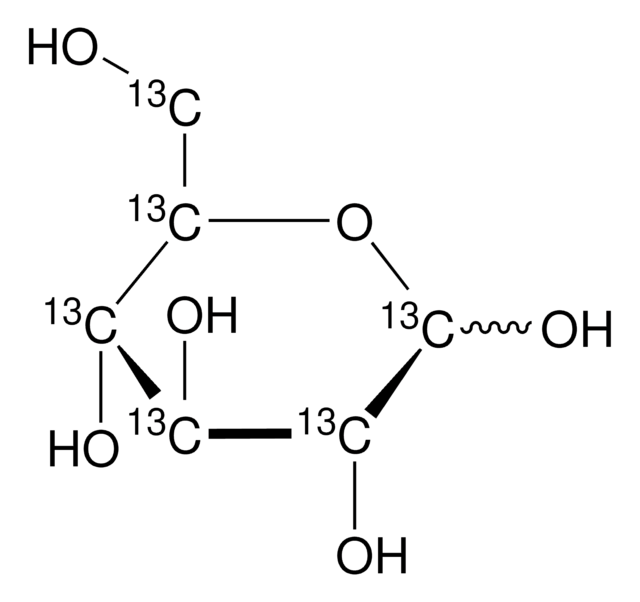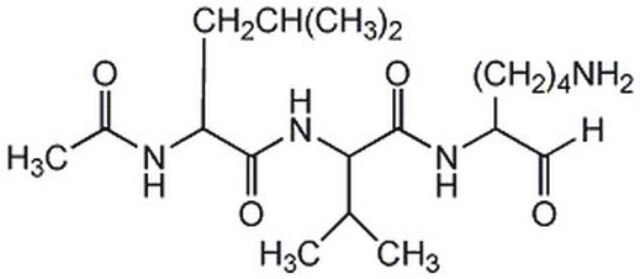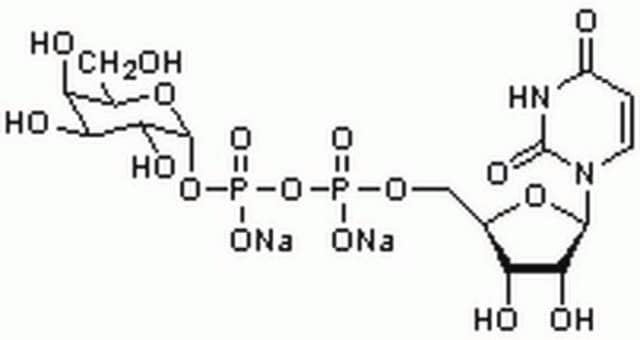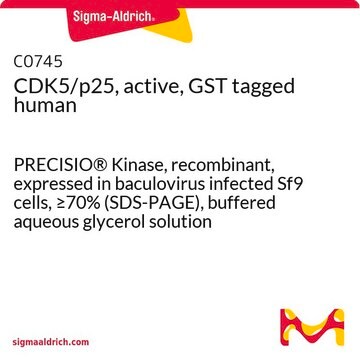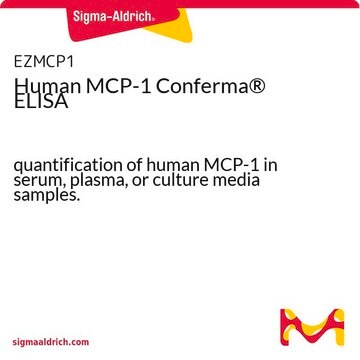SRP5011
CDK5/p35., active, GST tagged human
PRECISIO® Kinase, recombinant, expressed in baculovirus infected Sf9 cells, ≥70% (SDS-PAGE), buffered aqueous glycerol solution
Synonym(s):
CDKN5, PSSALRE
About This Item
Recommended Products
recombinant
expressed in baculovirus infected Sf9 cells
product line
PRECISIO® Kinase
Assay
≥70% (SDS-PAGE)
form
buffered aqueous glycerol solution
specific activity
157-213 nmol/min·mg
mol wt
~59 kDa (CDK5)
~60 kDa (p35)
technique(s)
activity assay: suitable
solubility
soluble
water: soluble
shipped in
dry ice
storage temp.
−70°C
Gene Information
human ... CDK5(1020) , CDK5R1(8851)
General description
Cdk5 is a proline-directed serine/threonine protein kinase that belongs to the family of cyclin-dependent kinases (CDKs). Active CDK5, also known as neuronal cdc2-like kinase is a heterodimer of CDK5 and is essential for its kinase activity. They are found abundantly in the mammalian brain.
Application
Biochem/physiol Actions
Physical form
Preparation Note
Legal Information
Storage Class Code
10 - Combustible liquids
WGK
WGK 1
Flash Point(F)
Not applicable
Flash Point(C)
Not applicable
Certificates of Analysis (COA)
Search for Certificates of Analysis (COA) by entering the products Lot/Batch Number. Lot and Batch Numbers can be found on a product’s label following the words ‘Lot’ or ‘Batch’.
Already Own This Product?
Find documentation for the products that you have recently purchased in the Document Library.
Our team of scientists has experience in all areas of research including Life Science, Material Science, Chemical Synthesis, Chromatography, Analytical and many others.
Contact Technical Service
